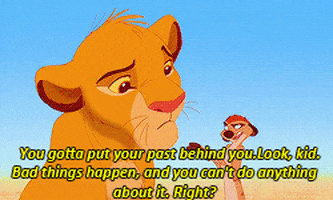A new study on test scores sheds light on 'substantial' pandemic learning loss. Here's what parents need to know.
Pass rates for standardized tests dropped from 2019 to 2021, with an average of 12.8 percentage points in math and 6.8 percentage points in English language arts.
7
Korin Miller
Tue, June 6, 2023 at 5:05 PM CDT
A big concern with school closures during the COVID-19 pandemic was the potential impact it could have on learning. Data has trickled in that has shown those fears have been realized — and new research adds to that.
A study published in the journal American Economic Review: Insights analyzed test score data for grades three through eight across 11 states from school districts during the 2020-2021 school year, along with district-level state standardized assessment data from spring 2016 through 2019, and 2021. The researchers found that pass rates for standardized tests dropped from 2019 to 2021, with an average of 12.8 percentage points in math and 6.8 percentage points in English language arts.
Worth noting: School districts with in-person learning had smaller declines than those with remote or hybrid learning models.
"It's clear from national data that there was a large decline in student learning during the COVID-19 pandemic," study co-author Emily Oster, an economics professor at Brown University and author of The Family Firm: A Data-Driven Guide to Better Decision Making in the Early School Years, tells Yahoo Life. "Our goal in this paper was to evaluate this in state-level testing data, where we could look carefully at correlates of the decline, in the hopes of better understanding how to implement recovery, and how to avoid these effects in the future."
But Oster's study is far from the only one to show the negative impact the pandemic had on learning. Here's what the research shows — and how parents can move forward.
What have studies shown about the impact of the pandemic on learning?
There have unfortunately been several studies since the pandemic began that show learning was impacted. "Substantial learning loss has been documented in countless studies," Brendan Bartanen, assistant professor of education policy at the University of Virginia, tells Yahoo Life. Here's what some of the larger studies have found:- In October 2022, the National Assessment of Educational Progress (a.k.a. the "nation's report card," which samples test scores from fourth and eighth graders) found that math scores for eighth graders dropped in nearly every state. Just 26% of eighth graders were considered proficient in math, based on testing, which was down from 34% in 2019. By comparison, 36% of fourth graders were considered proficient in math, down from 41% in 2019. Only 31% of eight graders and 33% of fourth graders were considered proficient in reading.
- A study published in May 2022 from the National Center for Analysis of Longitudinal Data in Education Research analyzed data from 2.1 million students in 10,00 schools in 49 states and the District of Columbia and found that remote learning was a "primary driver of widening achievement gaps." The researchers found that math gaps didn't get larger in schools that remained in-person. "We estimate that high-poverty districts that went remote in 2020-21 will need to spend nearly all of their federal aid on academic recovery to help students recover from pandemic-related achievement losses," the researchers concluded.
- A research brief published in July 2022 found that there were signs of "academic rebounding" in the 2021-22 school year. However, it includes this note: "Despite some signs of rebounding, student achievement at the end of the 2021–22 school year remains lower than in a typical year, with larger declines in math (5 to 10 percentile points) than reading (2 to 4 percentile points)."
- Research published in the journal Nature Human Behaviour in January analyzed data from 42 studies across 15 countries and concluded that students lost about 35% of a normal school year's worth of learning when in-person schooling stopped during the pandemic.
- A Pew Research Center survey of 3,251 parents published in October 2022 found that about 61% of parents of K-12 students said the first year of the pandemic had a negative impact on their child's education. Of those, 44% say that pandemic learning is still impacting their children.
[click link to continue reading]


